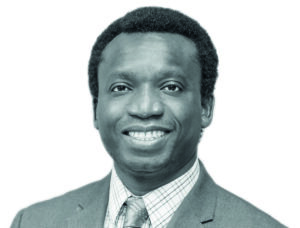
Recently, after completing a difficult open aortic operation with my attending, a bright M3 asked me, “Why vascular surgery?” The question didn’t catch me off guard, as I always have a ready answer, and we had just finished a pretty awesome operation. Also, it was enlightening to hear how my attending stumbled upon vascular surgery. We finished that operation, and, thankfully, the patient did well.
Nevertheless, in the weeks since, my mind has wandered back to this simple question. It’s one I’ve had to answer many times over, starting from my interview days years ago. I wanted to share some of my answers in the hopes that it’ll inspire others to consider vascular surgery.
Vascular pathophysiology
The thought of intervening on arterial and venous pathology (all over the body, no less!) was strongly appealing to me. There is no other field of medicine that is able to do what we do operatively and clinically. We share the treatment of some vascular beds with other specialties, but none of them are able to provide the true comprehensive vascular care that a vascular surgeon can provide.
That niche and the unique pathophysiology mean that we interact with almost every other specialty in medicine. Since most disease processes require vascular perfusion, it also means that vascular surgeons are often called upon to assist colleagues in unique ways.
Vascular pathophysiology is, at the same time, intriguing, complex, personalized and nuanced enough to keep us intellectually stimulated and engaged. No two operations as a vascular surgeon are the same.
The patient population
The vascular surgical population spans the extremes. On the one hand, vascular surgery patients are some of the sickest in the hospital. This means that, by default, we care for the marginalized, disenfranchised and most ill of patients with multi-system failure. Our patients frequently require ICU-level care, requiring us to have a strong working knowledge of critical care.
On the other hand, vascular surgery patients can be young, healthy athletes with thoracic outlet syndrome or popliteal entrapment, or they can be venous patients with varicose veins requiring outpatient intervention. I don’t like amputations, but as my training journey has progressed, I’ve come to see this intervention as less of a failure, but something that may help the patient achieve the goals of their lives after efforts at revascularization have not been successful.
The vascular surgical community
My first visit to the Vascular Annual Meeting (VAM) was in 2015, when it was in Boston. I remember walking away from that meeting feeling like I had finally found the group of physicians that I could fit into.
At that time, I had visited national meetings for other specialties, but vascular was the only one that checked all my boxes for what I was looking for in a career. Since then, I’ve attended many other vascular-specific meetings like the Vascular and Endovascular Surgical Society (VESS) meeting, the Pacific Northwest Endovascular Conference (PNEC), the Vascular Research Initiatives Conference (VRIC) and I’m looking forward to some more this year. At each meeting, I’m impressed by how tight and small a community vascular is. But, more importantly, my initial impression of the field as a welcoming, innovative, research-embracing, and collegial field has not diminished.
Research and mentorship
On that note, in 2015, I walked among the posters specifically looking to see what the breadth of research was in the field, and if I could fit in. I was pleasantly surprised at the number of high-quality scientific projects that were being pursued.
This discovery was very exciting because I knew that no matter what I decided to pursue in training or beyond, I knew I could find a mentor who had walked the road I sought to travel. Perhaps this was the biggest factor that drew me in to the field. And as a resident, the mentorship and sponsorship I’ve received have honestly kept me going.
The X factor
Okay, no, not the television show. Rather, the concept that there is just something indescribable about vascular surgery that just makes it cool. Maybe it’s the numerous endovascular devices we get to use, or it’s that we use fine needles and Castroviejo drivers to operate, or we respond to emergencies day or night, or it’s because we have the best operating room playlists; there’s just something about vascular surgery that makes it suave.
These were some of the answers I gave my M3 student. She was very good, and I hope she considers vascular. To that end, in 2023 at Corner Stitch we hope to cover a broad range of topics and, ultimately, help others see why vascular surgery is the best specialty!
Christopher Audu, MD, is the Vascular Specialist resident/fellows editor.












